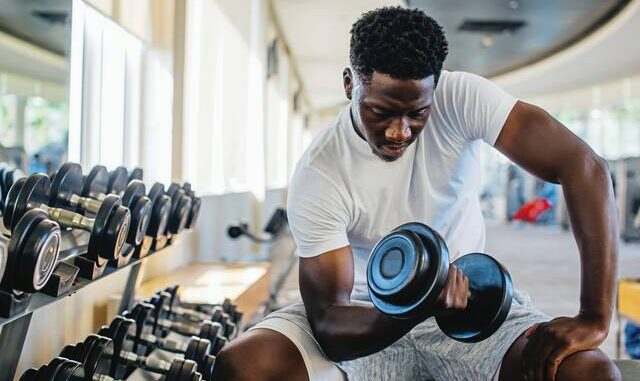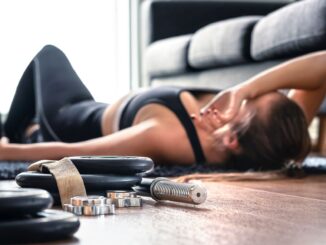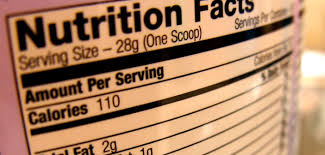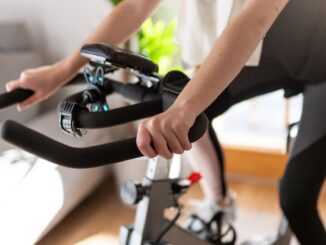
Sports performance is understood as the concept that refers to the relationship between the means used to achieve our goal and the result that is finally obtained.
For this reason, many athletes train with Vitruve device that allows them to achieve better scores in their respective sports or improve their state of health. Thus, it has positioned itself as a really accurate and useful tool for S&C teams and coaches, based on speed training.
In today’s article, we give you the 9 keys to improve your sports performance with this device. Don’t miss it!
1. Nutrition
Following a healthy and varied diet provides us with the necessary nutrients for proper sports performance. Eating foods high in carbohydrates (rice, potato, quinoa…) will allow us to keep our glycogen deposits full, which will give us greater endurance.
It should be borne in mind that an athlete suffers greater oxidative stress, so we should also choose nutritionally dense foods, those containing large amounts of vitamins, minerals and antioxidants.
During the competition, if it is a long one, we can choose to eat fruits such as bananas or dried fruits that are easy to carry such as sultanas or dried apricots. Avoid very fatty foods that make digestion difficult, such as cold meats.
It is essential to make a good recovery in order to continue training and avoid injuries. After training or competition, we must recover with meals high in carbohydrates that are quickly absorbed and easily digested protein. The quantities and types will depend on the sport practised and the objective pursued.
2. Hydration
There is no point in eating well without proper hydration. Dehydration considerably increases the risk of injury and reduces sporting performance. You should always hydrate before the start of the activity and, in general, if the duration of the activity is longer than one hour, you should also do so during the activity.
Hydration includes not only water, but also the replenishment of salts lost through sweat, mainly sodium. On days with very high temperatures, this aspect is essential to avoid a drop in performance and a dangerous condition such as hyponatremia.
3. Adaptation of schedules
We must adapt meal times to training sessions so that digestion does not interfere with sports practice, as this will reduce performance. You should wait a minimum of 3 hours after a meal, especially if it has been heavy or high in fat, protein or fibre.
If you need to eat just before the activity, it is better to eat foods that are easy to digest such as potatoes, lean meat or fruit.
4. Discipline
This is always a complicated point, but it is recommended to create different habits that make it easier to want to train. And, above all, set short and medium term goals within a big goal, it will allow you to meet expectations and not get discouraged.
5. Positivism
Sport psychology has its own well-structured and well-defined field. During a season or during a competition, doubts will always arise as to whether I am doing the right thing or whether I have trained enough. It is important to find a balance and always have a positive disposition to achieve the challenges.
6. Injuries
Listen to your body from the start, both when training and in the moments and days after. It will allow you to progress logically and, above all, without pain. As your experience in sport increases, you will be able to recognise the different states of fatigue and muscle overload. For this, it is always very important to train with the vbt encoder, consult a trainer or a physiotherapist, who can assess the physical condition of the individual athlete.
By using a vbt sensor like Vitruve’s, you are able to know the perfect load you must lift every day and the fatigue you are managing, which reduces significantly the risk of injuries and overtraining.
7. Short, medium and long term goals
The most important part in order not to fall into discouragement and frustration. Be aware of how far our body can go in relation to the training time. For this it is very important to set real goals based on your physical condition. The objectives must challenge the individual and at the same time be realistic.
8. Results
It is not only important to evaluate results at the end of a season, whatever the sport. Results should be evaluated at the beginning of the season, in the middle of the season and at the end of the season. This will allow us to assess whether the objectives that we did not set at the beginning of the season have been met and if not, to assess why and to look for solutions for next year.
Vitruve’s device gives you realtime personalised feedback during your training sessions, for this reason, you will be performing at your optimum velocity-load. This is another reason why training with an encoder device through velocity based training can increase your performance.
9. Recovery
It is as important to train as it is to rest and recover, as this will allow us to follow a logical and positive progression. We should not associate recovery with stopping training, as recovery can be achieved in different ways, all depending on the training we carry out. This small device previously mentioned allows us to quantify and adjust the desired fatigue. What does it mean? It means that the device tells us the minimum performance necessary that we can exercise in order to continue improving.



